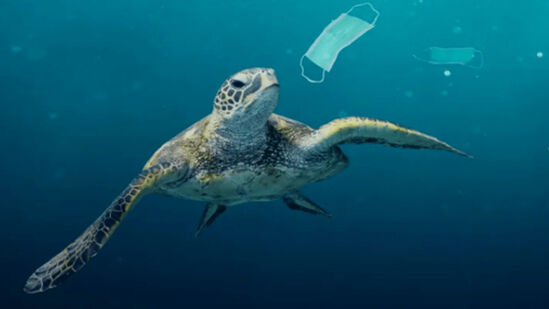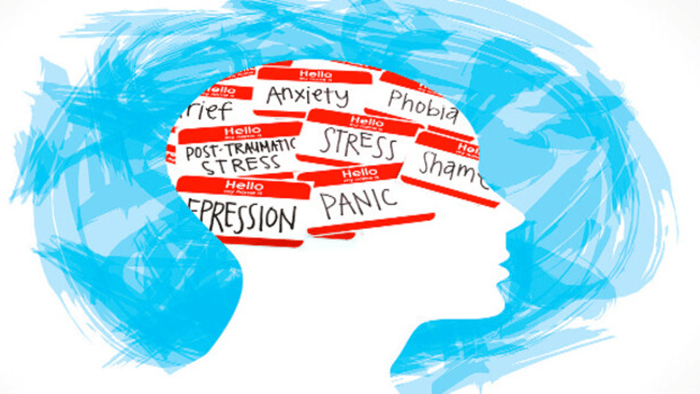
The WATER Pollution CRISIS Created By Pandemic Masking
Table of Contents
Since the very first lockdowns of 2020, those plastic-based face coverings have also been a water pollution disaster in the making.
SIngle-use masks were the mascots of the pandemic, lockdown generation. And now the masks are one of the biggest water pollution issues of our time.
Since the very first lockdowns of 2020, those plastic-based face coverings have also been an environmental disaster in the making. With the now discredited public health authorities saying that people needed to stem the tide of the pandemic with mask use - single use plastic based masking turned into a panacea. However, now we are faced with an onslaught of plastic, heavy metal and micro plastic water pollution.

The Global Tsunami Of Synthetic Waste
Face masks waste can now be observed everywhere as massive river, ocean and lake pollution.
For the first 2 years of the pandemic alone, the global population thew away over 129 billion face masks every month, or roughly 3 million masks in every minute. This is a conservative estimate - the numbers can be higher.
Discarded face masks have seeped into each nook of our lives, from city sidewalks to solemn niches of parklands, forests, streams, rivers, lakes and ocean beaches. Single-use masks have washed up on the shorelines of Hong Kong's Soko Islands and have smothered sea life off the coast of western Europe.
The irony of this situation is profound. A tool that was ostensibly distributed to safeguard public health has become a primary driver of long-term biological insecurity. Coastal communities that rely on fishing and tourism are now witnessing the "white tide" of masks clogging their nets and despoiling their protected reefs. This is not a localized problem; ocean currents act as a global conveyor belt, transporting the masks discarded in urban centers to the most remote, pristine corners of the Arctic and the deep-sea trenches where human footprints have never stepped, yet human waste has already arrived.
Ecological Entanglement And Biological Threats
Scientists and environmental advocates expressed alarm about this tsunami of waste, from the beginning of the ill advised lockdowns and over the top pandemic response. Environmental activists foresaw the dire ecological ramifications of the monumental waste of single use face masks — especially once the masks made their inevitable way into our earth's waterways.

Masks pose entanglement dangers for turtles, birds, and other animals. Fish could devour the plastic-fiber ribbons that unfurl from a discarded mask. Then, there is the untold threat to human fitness that would happen, on the microscopic level, once masks and plastics begin to dissolve into micro plastics, get into our food supply, our drinking water, and our bodies.
According to John Hocevar, The Greenpeace USA, Oceans Campaign Director. ...
“The plastics industry saw covid as an opportunity," The plastics industry worked tirelessly to lobby politicians and the general public that reusable masks are dirty and dangerous, and that single-use plastic masks are necessary to keep us secure. The plastics industry was lying for profit. And now, we have a self-inflicted environmental disaster on our hands.

The Chemical Reality Of The "Toxic Soup"
Dr. Sarper Sarp, a Chemical Engineering professor at Swansea University in Wales, led a contamination study that examined nine face masks. After submerging the masks in H2O, for a short period, permitting them to take a soak. After the soak, Sarp and his team discovered micro- and nano plastic particles released from each one. Effectively, the masks combined with H2O and created a toxic soup.
The toxic soup had nanoparticles of silicon, heavy metals like lead, cadmium, copper, and arsenic.
According to Dr. Sarper Sarp ...
"The toxic soup from the study can potentially disrupt entire marine food chains and contaminate the world’s drinking water."Nanoparticles — of plastic, silicon, or other materials — are so tiny in size that they could breach cell walls and harm DNA, affecting each human and nonhuman existence-forms on the cellular stage.
Bioaccumulation And The Microplastic Food Chain
This legacy of medical waste has effectively transformed our global water systems into a vast, slow-motion chemical experiment. As these millions of tons of polypropylene fibers continue to degrade under the relentless friction of tides and the corrosive power of UV radiation, they fragment into increasingly smaller pieces. These secondary microplastics are even more insidious than the original masks because they act as magnetic sponges for other industrial toxins already present in the water, such as polychlorinated biphenyls (PCBs) and pesticides. When a filter-feeding organism consumes a mask fiber, it isn't just ingesting plastic; it is absorbing a concentrated dose of environmental poisons that bioaccumulate as they move up the food chain, eventually landing on the dinner plates of unsuspecting families. Supporting Evidence: The Release Potential of Microplastics from Face Masks into the Aquatic Environment
A Crisis Of Unintended Outcomes ...
As the demand for face masks surged, so did the production of single-use disposable masks. Unfortunately, many of these masks end up in our rivers, lakes, and oceans, posing a significant threat to aquatic life and ecosystems. The materials used in these masks, such as polypropylene, take hundreds of years to decompose, leading to long-term pollution in our waterways.
Moreover, the improper disposal of face masks exacerbates the problem. Many people simply toss their used masks on the ground or in the trash, where they can easily be carried by wind or rain into storm drains and eventually make their way into bodies of water. Once in the water, these masks can entangle marine animals, causing harm and even death.
The impact of pandemic face masks on water pollution is not to be underestimated. Studies have shown that an estimated 1.56 billion face masks entered the oceans in 2020 alone, further adding to the already dire state of marine pollution. The presence of these masks not only harms marine life but also contaminates the water with harmful chemicals and microplastics, posing a threat to human health as well.
Addressing this crisis requires more than just better waste management; it demands a fundamental reckoning with our reliance on disposable culture. The "toxic soup" described by researchers is a permanent addition to our hydrosphere that cannot be easily filtered or reversed. As we look back on the policy decisions of the early 2020s, the visual of a blue surgical mask floating in a kelp forest serves as a haunting monument to a period of shortsightedness. We are now tasked with the monumental challenge of remediating a planet where the very water we drink is laced with the remnants of our fear, ensuring that the "unintended outcomes" of yesterday do not become the irreversible tragedies of tomorrow.
####
The video below shows why environmental activists are sounding the alarm on face mask pollution.




